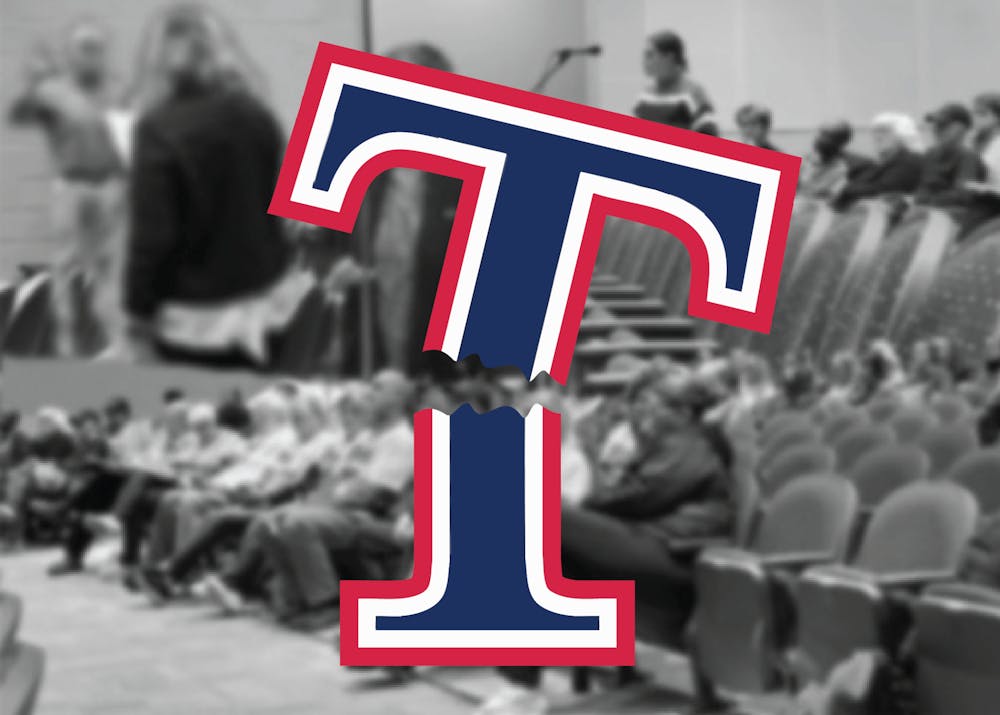I am what’s known as a “townie” – I’ve lived in Oxford since 2016. In my time here, I have noticed that many communities within Oxford are in contention with each other.
The town vs. the students
I have heard fellow year-round residents of Oxford describe the students as “tourists.”
This November, Oxford passed a tax levy to fund our fire and EMS services and fix the deficit these departments were running. A common grievance I heard among year-round residents was that Miami University students were causing excess costs to these departments, through frequent false fire alarms and alcohol poisoning incidents. Many felt that Miami students came to Oxford, drained the resources residents pay for and left four years later without paying back into the community.
I can’t say I disagree with this idea. However, when I say I live in Oxford, fellow students are often surprised that people live here year-round. I understand how easy it is to stay on and around campus and pay no attention to the surrounding community.
Still, I think it’s important that students remember the community of Oxford residents around them who run their favorite businesses, teach their classes and make Miami life possible.
Growing up in Oxford, Uptown during the summer was a paradise. My friends and I would get a Rapid Fired pizza and stop by Graeter’s for dessert. We would watch the free concerts in the park every Thursday, or go to the seemingly endless stream of festivals complete with food trucks and bouncy houses.
Come August, however, the students would return. Uptown would transform from our family-friendly paradise into a place no sane sixth grader would dare venture after sundown. It was nearly impossible to enjoy yourself surrounded by the throngs of drunken college students. In the morning, all that remained were crumpled beer cans and half-eaten slices of Bruno’s pPizza.
Now, as a student, Uptown on a Friday night is a good time. The inebriated twenty-somethings that flood the streets are my classmates and peers, rather than terrifying strangers. Still, I can’t help but remember what trying to navigate that scene as a child was like.
The university vs. the administration
Miami’s faculty and staff unionized in 2023, creating the Faculty Alliance of Miami (FAM). While this does not necessarily put them in opposition to the administration, the administration’s refusal to consider reasonable requests by the union has increased tensions between the two groups.
The university community is also being left out of important decisions on campus. In an interview with The Miami Student, David Prytherch, a geography professor and member of the Campus Planning Committee, said the administration fails to consult community stakeholders before making decisions.
Enjoy what you're reading?
Signup for our newsletter
In her comments about the proposed arena on Slant Walk, as reported by The Miami Student, Cathy Wagner, an English professor and University Senator, said “decisions are being made in ways that make us not feel like the academic mission is number one in the minds of leadership.”
She also raised concerns about a lack of student input in the decision-making process.
“The whole university is a public university that is here for students,” Wagner said. “Why this process doesn’t start with students is a mystery to me.”
Liberals vs. conservatives
Oxford is a liberal bubble in a conservative county. This is obvious during election years; As you drive outside of the city limits, the yard signs for Democratic candidates slowly become scarcer, and the Republican yard signs begin popping up.
Another easy way to see this divide between liberal and conservative politics is at local school board meetings.
I attended Talawanda High School, and in my junior year I took an interest in the board of education meetings. I went to as many as I could, watching as board members and the community debated over everything that makes the school district run, from funding deficits to educational initiatives to the installation of new football turf.
At the most recent Board of Education meeting, the first several speakers were Talawanda High School teachers who all praised the school district for the education and services it provides for its students.
There was a group of parents called Citizens for Our Children, formed by Art Sauerwein, a former campaign manager for Republican State Representative Diane Mullins. These parents said they were concerned about a recent TikTok posted by English teacher Danielle Mann. Many of these parents spoke of their concern over Mann’s politically charged message, stressing that school should be a nonpartisan space, and they raised concern about discrimination against Republican students.
Another speaker, Tom Romano, defended Mann, saying he believes she embodies all the qualities important in a teacher.
One of the last speakers was Annie Dittman, who said she would “question if it’s coincidental” that the first 10 speakers of the meeting were teachers, and that their comments were exactly 30 minutes, the allotted amount of time that public comment is usually allowed to go for at meetings.
As I understood it, she was implying that this was meant to block the Citizen’s for Our Children parents from speaking. Before Dittman’s comment, however, school board president Rebecca Howard had already said she would extend public comment time, given how many people had signed up to speak.
The public comments at this board meeting exemplify the divided community that the Talawanda School District serves, and the distrust that the Talawanda and Oxford communities have within themselves, and for the school board.
Eliza Sullivan is a first year double majoring in diplomacy and global politics and Russian, Eastern European, and Eurasian studies. She writes for the opinion section of The Miami Student. She is also involved with model Arab league and plays in the Miami steel band.




